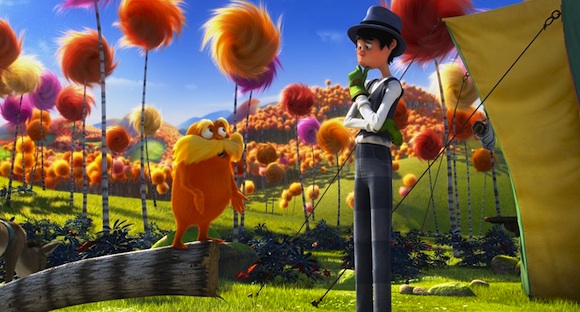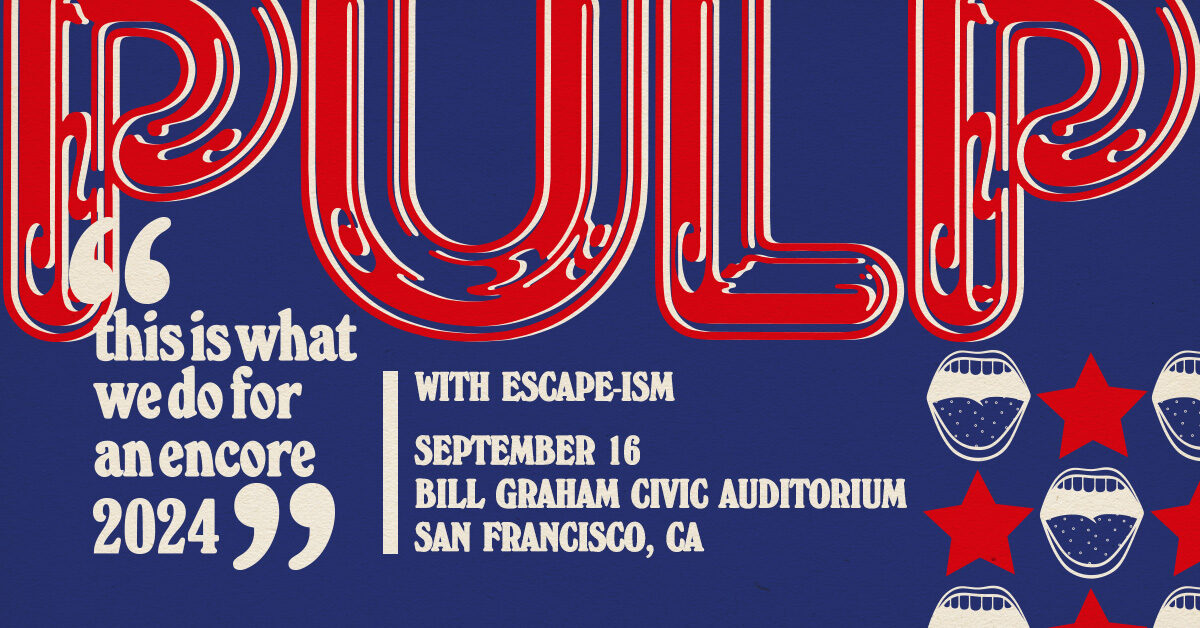Movie Review: Dr. Seuss’ The Lorax
A star-studded cast, including Zac Efron, Betty White and Danny DeVito bring Dr. Suss’ pro-environmental, anti-corporate fable to the big screen.
Adapting the late Dr. Seuss’ work from picture book to live-action or animated feature-length film may seem a difficult, if not impossible task, especially considering the slim material, but that hasn’t stopped Hollywood from attempting to bring Dr. Seuss’ better known works to the big screen.
Two, The Cat in the Hat and The Grinch Who Stole Christmas, were adapted as big-screen vehicles for then popular comedians (Mike Meyers and Jim Carrey, respectively). Dr. Seuss, however, was always more suitable to traditional or computer animation, as 2008’s commercially and critically successful adaptation of Horton Hears a Who! proved. Luckily, the latest adaptation, Dr. Seuss’ The Lorax hews closer to the latter rather than the former in terms of overall quality and entertainment value.
When we first meet the inhabitants of Thneedville, a plastic dystopia controlled by a pint-sized, megalomaniac, Mr. O’Hare (Rob Riggle), they’re blissfully, if ignorantly, singing about the pleasures of living without trees or grass or anything resembling the natural world. O’Hare has cornered the market on clean air, selling bottles and containers filled with air to Thneedville’s residents. The Lorax’s ostensible teen hero, Ted (Zac Efron), isn’t, however, motivated by a rebellious spirit or a desire for his social justice. As with most teenage boys, he’s motivated by a girl, a slightly older neighbor, Audrey (Taylor Swift), obsessed with trees or rather the memory of trees. Ted decides to venture into the outside world and, if possible, bring back a real tree for Audrey (easier said than done, of course).
Ted’s grandmother (Betty White) suggests he seek out the Once-Ler (Ed Helms), which he dutifully does after navigating a barren, post-apocalyptic landscape. Reticent at first, the Once-Ler begins to share his painful past with Ted, ultimately revealing his role in creating the post-apocalyptic landscape due to a combination of greed, hubris, and pride. The Lorax (Danny DeVito), a diminutive, orange-furred, yellow-mustachioed guardian of the trees (because the trees can’t speak for themselves) appears to the Once-Ler when he harvests the first Truffula tree for his latest, presumably greatest, invention, an all-purpose garment the Once-ler dubs a “Thneed. ” The Once-Ler, of course, fails to heed the Lorax’s advice to desist from harvesting (or rather over-harvesting) the trees, ultimately leading to the post-apocalyptic wasteland Ted encountered on his way to the Once-ler’s dilapidated abode.
Dr. Seuss left little doubt about the nature of the conflict between the Once-ler and the Lorax, where he stood, and the pro-environmental, anti-corporate, anti-over-consumption message he wanted to impart on his young readers in 1971 or a year later when a half-hour, animated special appeared on network television. The filmmakers behind The Lorax, Chris Renaud (Despicable Me), co-director Kyle Balda, and Ken Daurio (Hop, Despicable Me, Horton Hears a Who!) have done little to dilute that message (quite the opposite, actually) unsurprisingly raising strenuous pre-release objections from conservative pundits and groups (as they did forty years ago).
There’s also no doubt that Renaud and his collaborators use a heavy hand to foreground Dr. Seuss’ message, but even with that caveat in mind, they offer an overabundance of eye-catching, candy-colored visuals, not to mention the by now obligatory, running-time expanding set pieces (e.g., multiple chase scenes). Cognizant of the potential for eye-strain and spatial confusion that can accompany 3D, Renaud and his collaborators keep the sightlines clear, the camerawork clean, and the editing smooth. For that and much else, Dr. Seuss’ fans can be thankful this weekend.
Showtimes and Tickets









